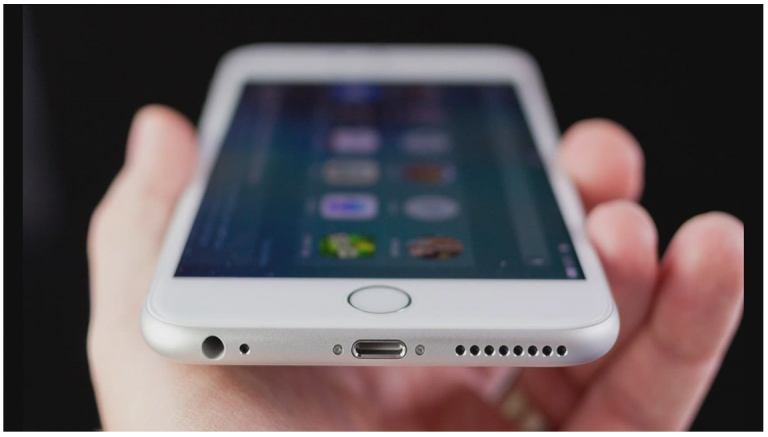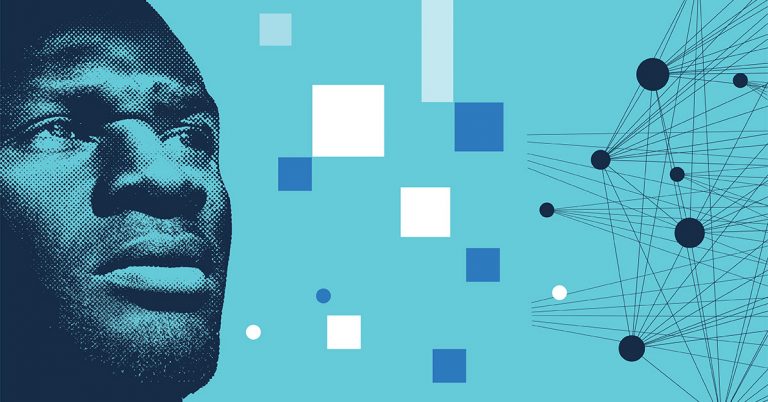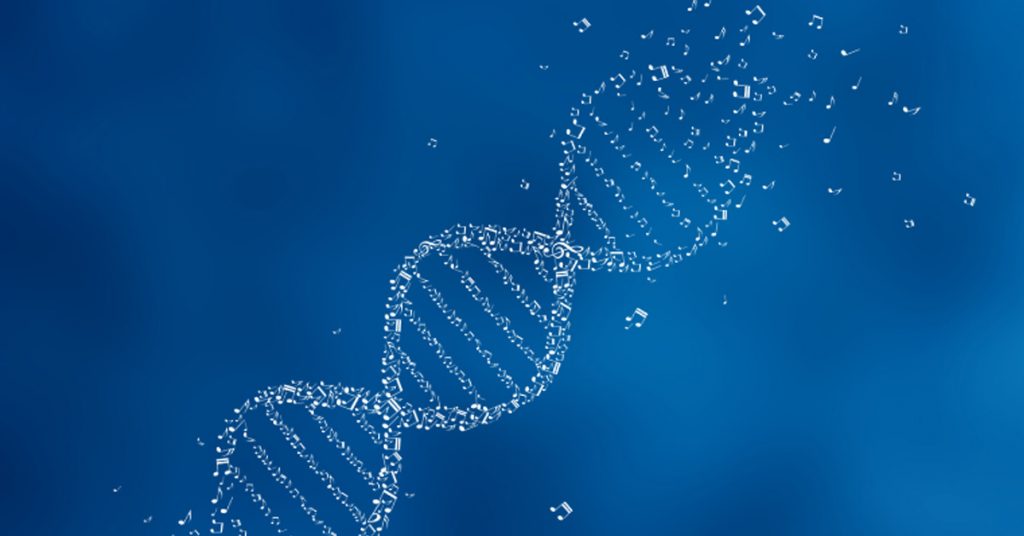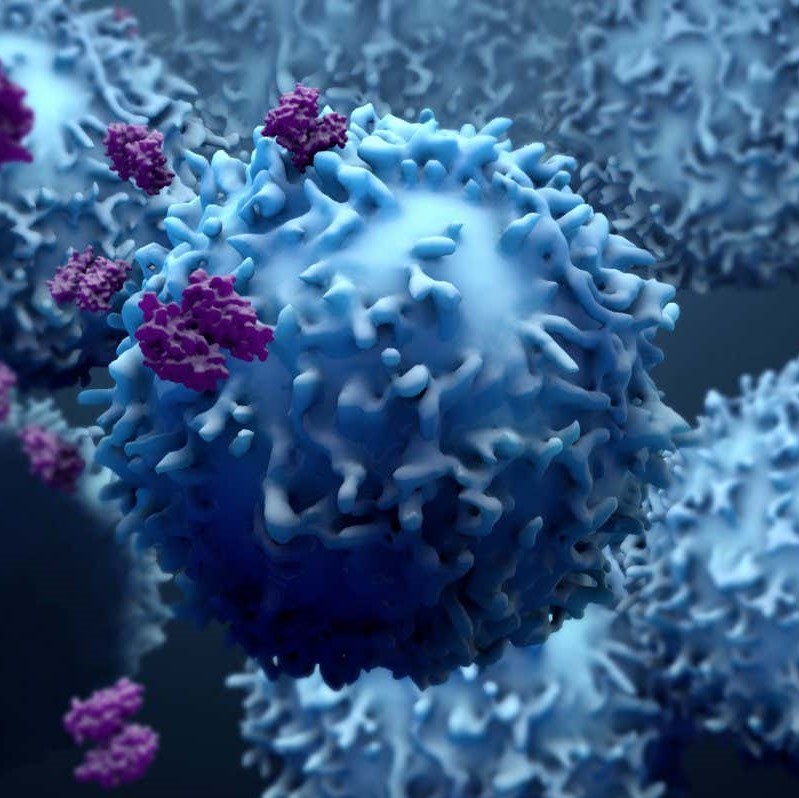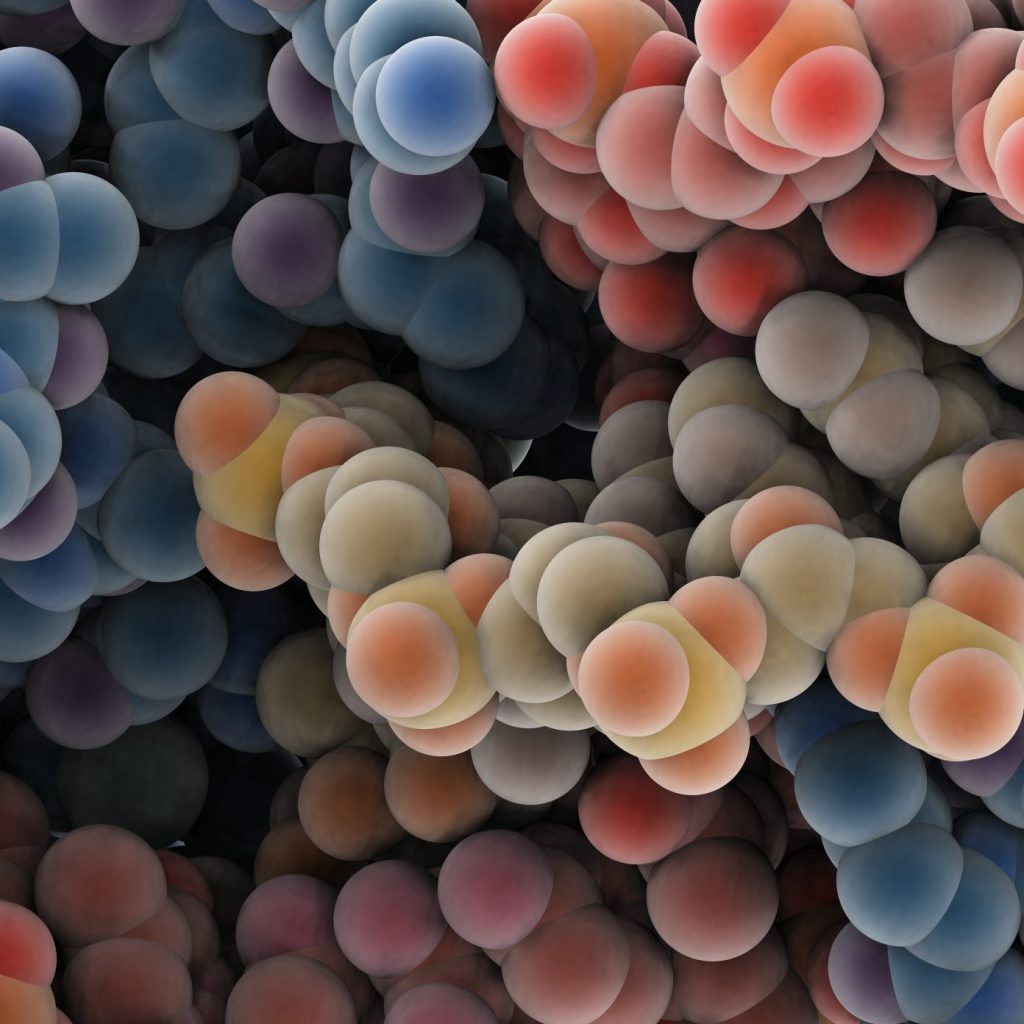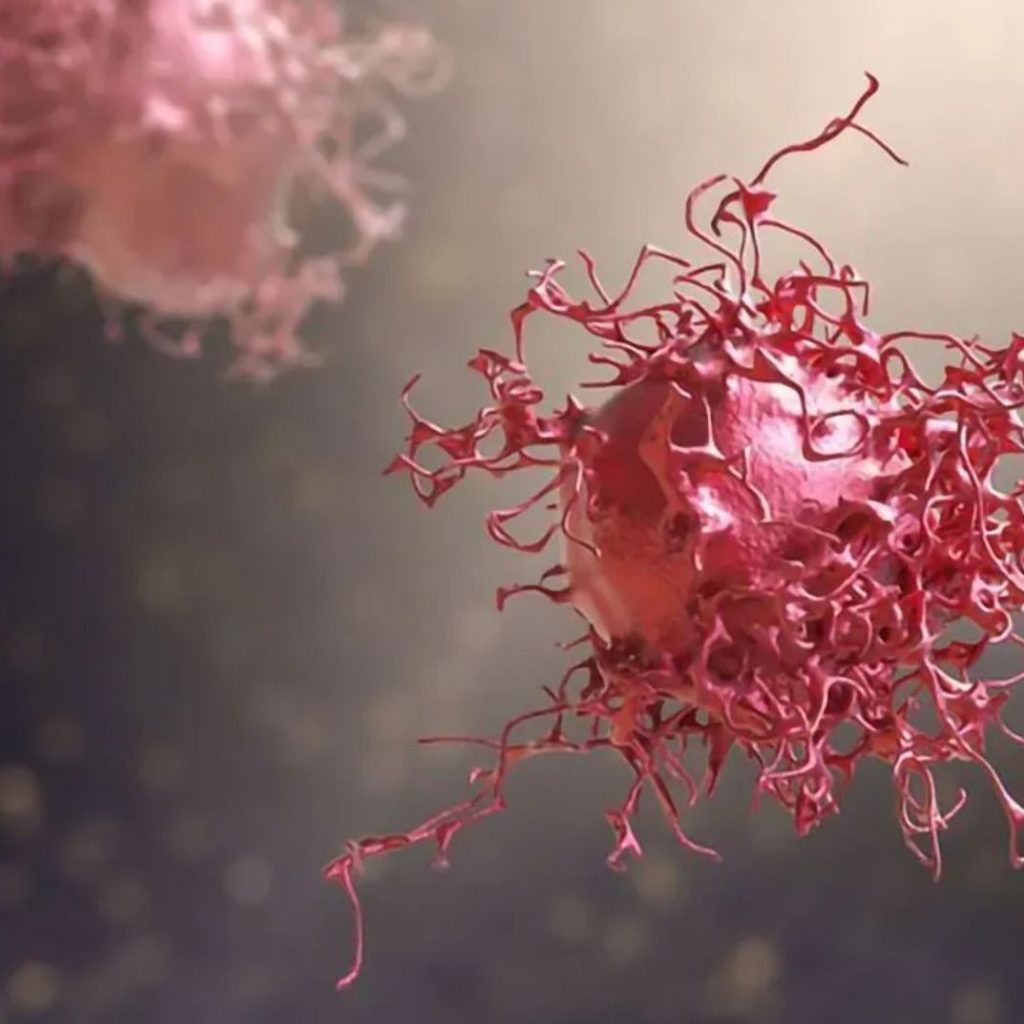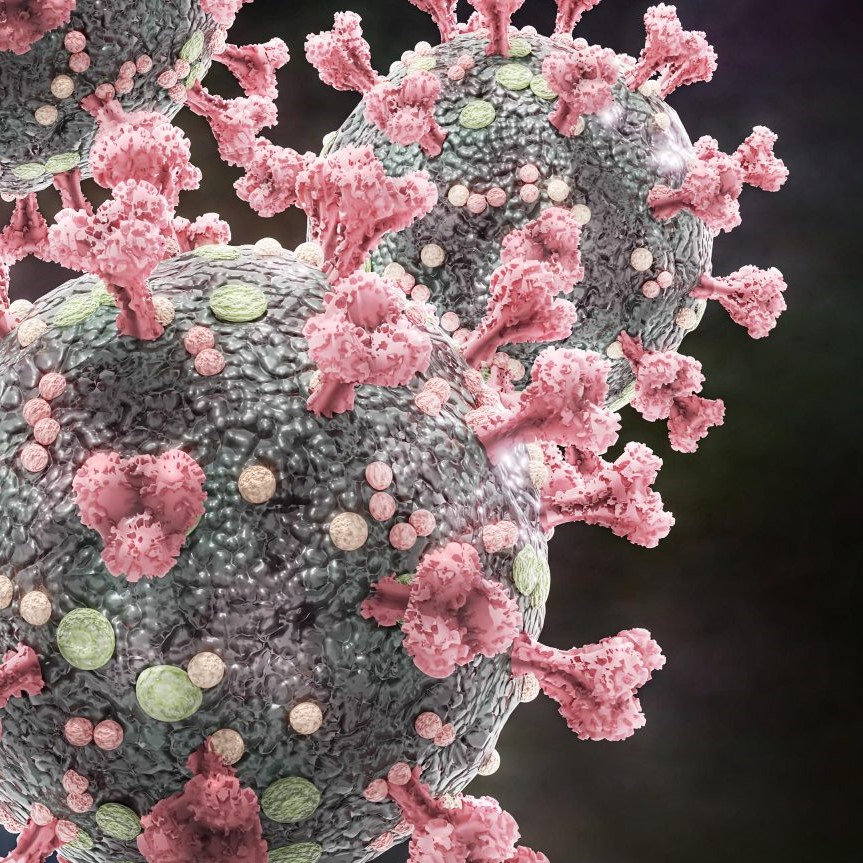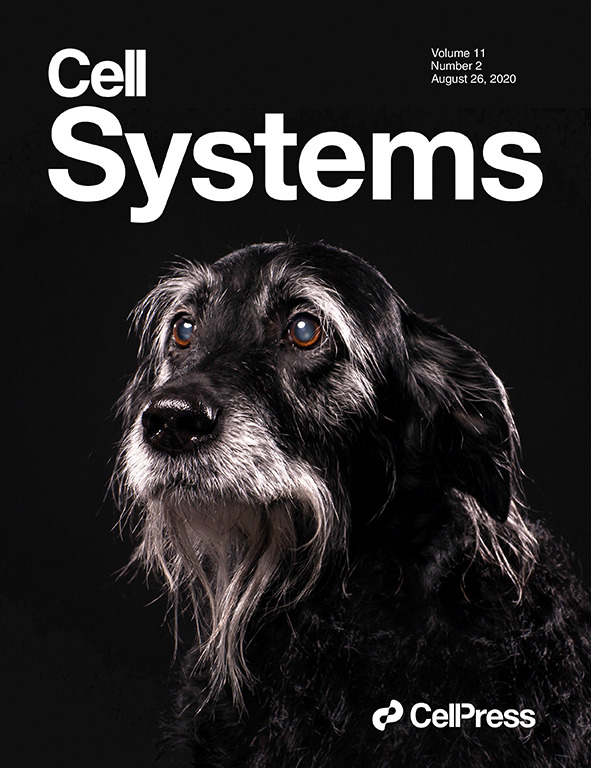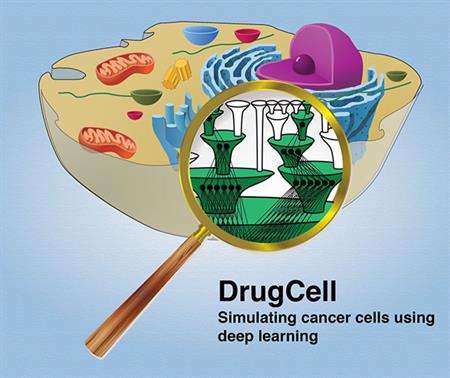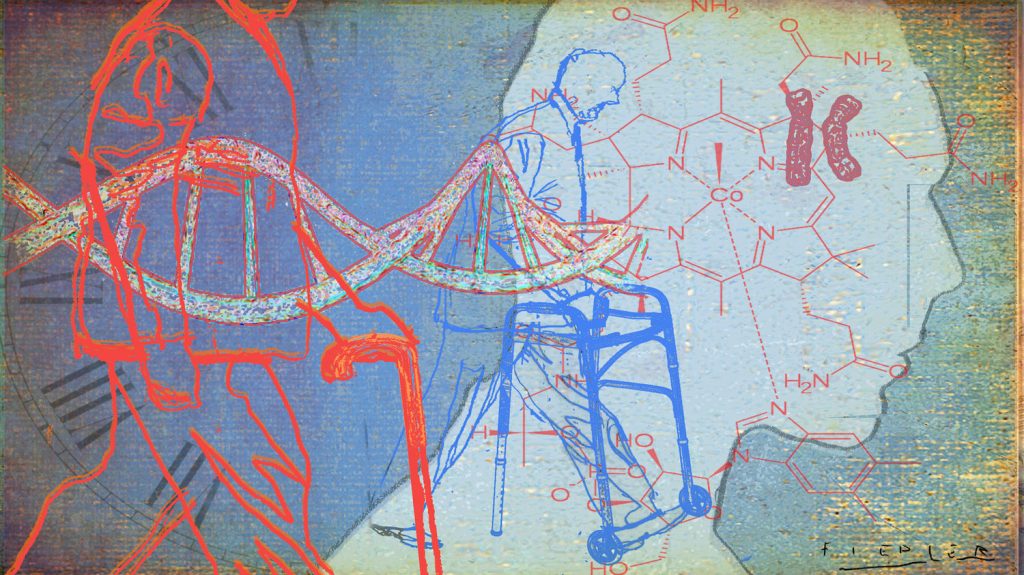2024
- Infusion of Artificial Intelligence in Biology. Meenakshi Prabhune, TheScientist. (2024 Feb 23) [PDF]
- Machine Learning Models Help Predict Medication Responses. Barbara Vann, National Cancer Institute (NIH). (2024 Feb 5) [PDF]
- UCSD School of Medicine researchers use AI models to predict chemotherapy treatment responses. Eru Ishikawa, The UCSD Guardian. (2024 Jan 29) [PDF]
- Interview with Dr. Ideker “UC San Diego School of Medicine uses AI to predict which drugs to use to treat cancer patients”. Abbie Black, CBS News. (2024 Jan 18)
AI Harnesses Tumor Genetics to Predict Treatment Response. Miles Martin, UC San Diego Today. (2024 Jan 18) [PDF]
Scientists use AI to predict when cancer cells will resist chemotherapy. Sejal Sharma, Interesting Engineering. (2024 Jan 18) [PDF]
- AI points to better and new cancer treatments. Susan Robertson, Innovators Magazine. (2024 Jan 18) [PDF]
- “Hundreds of proteins work together in complex arrangements to replicate DNA. Mutations in any one part of this system can change how the entire tumor responds to chemotherapy.”
- AI Uses Tumor Genetics for Prediction of Treatment Response. Mary Ann Liebert, Inside Precision Medicine. (2024 Jan 18) [PDF]
2023
- A New Map Reveals the Complicated World in Which Cells Seek to Repair Damaged DNA. Scott LaFee, UC San Diego Today. (2023 May 22) [PDF]
- Smartly Done. Artificial intelligence is on its way to transforming how we understand and treat disease. Nicole Mlynaryk, UC San Diego Today. (2023 May 18) [PDF]
“The same way your Netflix algorithm predicts what movie you should watch tonight, our algorithms will predict what drug is best fit to treat your cancer”.
- Congratulations to Dr. Yue Qin, she has been selected to join the Forbes 30 Under 30, Class of 2023. Read more here and here. (2023 May 17)
- Congratulations to Dr. Yue Qin, she has been awarded the 2023 UCSD Chancellor’s Dissertation Medal recipient for the Jacobs School of Engineering. (2023 May 10)
Congratulations to Ximena Gonzalez for her feature on UCSD-TV’s LatinxChicano – Academic Excellence Initiative, where she shares her academic journey with future college freshmen. (2023 Jun 29)
2022
UC San Diego Joins NIH ‘Bridge to Artificial Intelligence’ Program. The NIH Common Fund’s initiative will expand the use of artificial intelligence to solve pressing challenges in human health. Nicole Mlynaryk, UC San Diego Today (September 13, 2022)
“Researchers at University of California San Diego School of Medicine have been selected to lead components of the National Institutes of Health (NIH) Common Fund’s Bridge to Artificial Intelligence (Bridge2AI) program. Over the next four years, Bridge2AI will award $130 million to accelerate the widespread use of AI in biomedical research and health care”
Dr. Trey Ideker is honored to be included in the ISCB 2022 Class of Fellows. The ISCB Fellows program was created to honor members who have distinguished themselves through outstanding contributions to the fields of computational biology and bioinformatics. Begun in 2009, 2022 marks the 13th anniversary of the program. ISCB will be honoring the 2022 Class of Fellows during the ISMB 2022 conference. (28 Apr 2022)
Interview with Dr. Ideker “How old is your dog in human years? New formula is more accurate than multiplying by 7”. The Kelly Cutrara Show, Global News Radio 640 Toronto. (4 Feb 2022)
Scientists develop novel tools to visualize DNA repair. Monish Makena, The Science Advisory Board (4 Jan 2022)
2021
“Artificial intelligence allows us to see the invisible inside cells” Sciences Et Avenir (27 Dec 2021)
Interview with Dr. Ideker “Revealing a Cell’s Components through Artificial Intelligence” AZO Life Sciences (23 Dec 2021)
Dr. Ideker named on the annual Clarivate™ Web of Science Highly Cited Researchers List 2021 (1 Dec 2021)
AI-Based MuSIC Reveals Previously Unknown Cell Components. GEN (29 Nov 2021)
Shock AI Discovery Suggests We’ve Not Even Discovered Half of What’s Inside Our Cells. Clare Watson. Science Alert. (26 Nov 2021)
- UCSD Finds Technique That Could Boost Mapping of Cell Interiors. Times of San Diego (24 Nov 2021).
- See also La Jolla Light, Patch.
- We Might Not Know Half of What’s in Our Cells, New AI Technique Reveals. UC San Diego News Center (24 Nov 2021).
Investigators Aim to Identify New Treatment Targets with Cancer Cell Map Initiative. OncLive (16 Nov 2021)
Dog Years to Human Years: Your Canine’s Lifespan Explained. Newsweek (7 Nov 2021)
Studies Delve Deep into the Protein Machinery of Cancer Cells. National Cancer Institute, Cancer Currents Blog (4 Nov 2021) [PDF]
Uncovering Key Interactions Between Cancer-Driving Proteins. Laura Elizabeth Lansdowne, Technology Networks (12 Oct 2021) [PDF]
UCSD researchers help map out how cancer mutations affect proteins. Valley News (7 Oct 2021)
Moonshot Project Aims to Understand and Beat Cancer Using Protein Maps. Singularity Hub (5 Oct 2021)
Cancer Cell Map Initiative reveals protein interactions that drive cancer. The Science Advisory Board (4 Oct 2021)
From COVID to cancer, gene-mapping tool could ‘revolutionize’ treatment, UCSF studies say. Danielle Echeverria, San Francisco Chronicle (2 Oct 2021) [PDF]
UC San Diego ‘Cancer Cell Mapping’ Research May Improve Chemotherapy. Times of San Diego (2 Oct 2021)
New map of protein interactions offers opportunity to ‘do such damage to cancer,’ scientists say. FierceBiotech (1 Oct 2021)
In-Depth Cancer Protein Mapping Project Sheds Light on Disease Processes. Clinical Omics (1 Oct 2021) [PDF]
Cancer: A map of proteins in tumor cells identifies therapeutic targets. Eminetra (30 Sept 2021)
Proteins give a clearer picture of cancer growth. Eileen Drage O’Reilly, AXIOS (30 Sept 2021)
Protein network map uncovers previously unknown cancer drivers. News Medical (30 Sept 2021)
First map of proteins in tumour cells pinpoints cancer therapy targets. New Scientist (30 Sept 2021)
Looking Beyond DNA to See Cancer with New Clarity. Heather Buschman & Robin Marks, UCSF Research News, see also UCSD Health Newsroom (30 Sept 2021)
Study identifies 579 genetic locations linked to anti-social behavior, alcohol use, opioid addiction and more. Science Daily (26 Aug 2021)
COVID-19: Scientists Identify Human Genes That Fight SARS-CoV-2 Infection. SciTech Daily (16 Apr 2021)
2020
- 52 UC San Diego Researchers Are Named Highly Cited in 2020 Listing. UC San Diego News Center. (23 Nov 2020)
- See also: Dr. Ideker named on the annual Clarivate™ Web of Science Highly Cited Researchers™ 2020 list
- Old Dogs, New Research and the Secrets of Aging. James Gorman, New York Times (9 Nov 2020) [PDF]
- DrugCell: New experimental AI platform matches tumor to best drug combo. ScienceDaily (26 Oct 2020)
- Deep Learning Model Could Enhance Cancer Precision Medicine. Health IT Analytics (26 Oct 2020)
- New AI Platform Matches Tumor to Right Drug Combination. Med India (23 Oct 2020)
- Experimental AI platform predicts best approach to cancer treatment. AZO Life Sciences (26 Oct 2020)
- DrugCell: New Experimental AI Platform Matches Tumor to Best Drug Combo. Heather Buschman, UC San Diego Health Newsroom (22 Oct 2020)
- How Mass Spectrometry is Accelerating Quantitative Proteomics. Bio-IT World (20 July 2020)
- Deep learning takes on tumours. Artificial-intelligence methods are moving into cancer research. Esther Landhuis, Nature, Technology Feature. Vol 580, 551-553 (21 April 2020) [PDF]
- Hundreds of Scientists Scramble to Find a Coronavirus Treatment. Carl Zimmer, The New York Times. (17 March 2020) [PDF]
- Genes from scratch: Far more common and important than we thought. Science Daily (18 Feb 2020)
- Podcast: How old is your dog in human years? Genetic study offers a new way to answer that question. Scientific American (9 January 2020)
- How to calculate your dog’s real age. BBC (6 Jan 2020)
2019
- Fido’s Human Age Gets New Estimates. Scientific American (27 Dec 2019)
- Radio Interview: Measuring A Dog’s Age Is More Complicated Than You Think. KCBS Radio. (14 Dec 2019)
- Here’s the new way to calculate your dog’s age. WGN Radio (13 Dec 2019)
- A New Way To Calculate Your Dog’s Age. NPR (7 Dec 2019)
- Researchers propose new way to measure dogs’ ages. New York Daily News (7 Dec, 2019)
- Scientists have come up with a better way to convert your dog’s age to human years. Washington Post (28 Nov 2019)
- A new formula for converting the age of dogs to humans has appeared, how old are 1-year-old dogs? Gigazine (22 Nov 2019)
- Convert your dog’s age into human years using this new formula. New Scientist (21 Nov 2019)
- Science May Have a Better Way to Translate Dog Years to Human Years. Discover Magazine (20 Nov 2019)
- A new mathematical formula to calculate the “human” age of dogs. GreenReport (20 Nov 2019).
- New “dog to human years” calculation more accurately determines when your beloved pet will die. TechBallad (20 Nov 2019), reprinted at AV Club (20 Nov 2019).
- Calculate Your Dog’s Age With This New, Improved Formula. Smithsonian Magazine (19 Nov 2019)
- Why a dog’s age in ‘human years’ might not be as old as you think. New York Post (19 Nov 2019)
- There’s a Better Way Calculate Your Dog’s True Age in Dog Years, Researchers Say. People Magazine (19 Nov 2019)
- New way to calculate your dog’s age in human years. That’s Life! (19 Nov 2019)
- How old is my dog? Sueddeutsche Zeitung (19 Nov 2019)
- The New Formula to Calculate Your Dog’s Age in Human Years. Popular Mechanics (18 Nov 2019)
- How old is your dog REALLY in ‘human years’? Researchers come up with a new formula for calculating the ‘true age’ of your canine friend (and it’s not multiplying it by seven). Daily Mail UK (18 Nov 2019)
- Your dog’s REAL age in ‘dog years’ revealed (and it’s not their age multiplied by seven). The Sun (18 Nov 2019), see also FOX News, WDRB .
- What’s The Real Human Equivalent of Your Dog’s Age? Here’s a New Formula. Science Alert (18 Nov 2019)
- Here’s a better way to convert dog years to human years, scientists say. Science Magazine (15 Nov 2019)
- See also: Considerable, New York Magazine,
- Classroom crowdscience: UC students challenged to detect schizophrenia genes. Physorg. (Apr 24, 2019).
- Genome-wide analysis reveals new strategies to target pancreatic cancer, Scott LaFee, ScienceDaily (April 4, 2019).
- Ribosomal DNA Can Predict an Animal’s Age. Abby Olena, The Scientist Magazine. (Feb 14, 2019). PDF.
2018
- Ideker Lab awarded a Merck KGaA 350 Research Grant to develop an AI for Cancer. LinkedIn, Dec 2018.
- Trey Ideker included in new listing of highly cited researchers in the top 1% for their field. 45 UC San Diego Faculty Named Most Influential in Their Fields. Michelle Franklin, UC San Diego News Center. (November 28, 2018)
- Watch Video: Dr. Ideker’s keynote talk at The Workshop on the Future of Algorithms in Biology (FAB) 2018. “Towards a structure/function simulation of a cancer cell.” Video recorded at Carnegie Mellon University. (Sept 28, 2018)
- Scientists map interactions between head and neck cancer and HPV: Connecting the dots between human papillomavirus and smoking-related cancers. Julie Langelier, Gladstone Press Release. (Sept 12, 2018).
- NIH Funds UCSF-led Initiative to Chart a Course Toward New Psychiatric Drugs. Dana Smith, UCSF News Center. (September 05, 2018)
- Genetic Mutations of Appendix Cancer Identified, May Impact Treatment. Yadira Galindo, UC San Diego News Center. (August 08, 2018).
- Mutations in Noncoding Regions of Human Genome Also Cause Cancer, Study Shows. Patricia Inacio, Myeloma Research News. (25 June 2018) PDF
- Gems in the ‘Junk’ – Noncoding mutations found to be a major mechanism in cancer. Rachel Flehunger, DDN News. (7 May 2018). [PDF]
- Video: Dr. Ideker’s talk at AACR 2018: “Decoding patient genomes through the hierarchical pathway architecture of the cancer cell“. Trey Ideker. AACR Webcasts. Video recorded at the AACR Annual Meeting 2018 on April 16, 2018. (Chicago, IL)
- Researchers Identify Hundreds of Mutations outside of Coding Genes that Influence Tumor Gene Expression. Zvi Cramer, SCI NEWS. (06 Apr 2018)
- Cancer Can Be Driven by Noncoding DNA Mutations. Genetic Engineering & Biotechnology News. (Apr 3, 2018)
- Even DNA that Doesn’t Encode Genes Can Drive Cancer. Heather Buschman, UC San Diego Health Newsroom. (02 April 2018) [PDF]
- Cracking Open the Black Box of AI with Cell Biology. Eliza Strickland, IEEE Spectrum, (13 Mar 2018).
- Deep Learning-Based Cell Model May Predict Patient Tumor Cell Growth Someday. Uduak Grace Thomas, Genome Web, (06 Mar 2018). [PDF]
- Virtual Cell Can Simulate Cellular Growth Using Machine Learning. Kenny Walter, R and D Magazine (05 March 2018).
- How a Yeast Cell Helps Crack Open the “Black Box” Behind Artificial Intelligence. Heather Buschman, PhD, UC San Diego Health Newsroom, (05 March 2018). Reprinted at Phys.Org News (05 March 2018), and Technology Networks (06 March 2018).
- Interview with Dr. Ideker: Duke TIP Takes 5 with Distinguished Alum, Trey Ideker. Duke TIP (07 Febr 2018)
2017
- Cell Mapping Initiatives Aim to Uncover Hidden Pathways of Disease. Nicholas Weiler and Bennett McIntosh, UCSF News Center. (15 Nov 2017)
- Frontline Cancer: Genetic background can provide clues about possible future tumors. Dr. Scott Lippman, La Jolla Light, (31 May 2017).
- CRISPR-based mapping of genetic interactions. Ross Cloney, Nature Reviews Genetics 18, 272–273 (2017) doi:10.1038/nrg.2017.25 (03 April 2017).
- Gene Editing Approach Uncovered Cervical Cancer’s Weak Spots. Magdalena Kegel, Cervical Cancer News (27 Mar 2017).
- Watch interview with Dr. JP Shen: Gene editing used to find cancer’s genetic weak spots, Bradley J. Fikes, San Diego Union Tribune, (22 March 2017). [Printed article]
- CRISPR/Cas9 Reveals Cancer’s Synthetic Lethal Vulnerabilities, GEN Genetic Engineering & Biotechnology News Highlights (21 March 2017).
- CRISPR Method Used to Detect Synthetic Lethalities in Cancer. GenomeWeb, (20 March 2017).
- Gene Editing Technique Helps Find Cancer’s Weak Spots. Heather Buschman, UCSD Health Newsroom, (20 March 2017).
- The Siri of the cell – Tech Podcast. Leigh Alexander and Iain Chambers, The Guardian, (9 Mar 2017).
- Massively Parallel Perturbations. Ruth Williams, The Scientist, (1 Mar 2017).
- Ideker Lab awarded the 2017 Roddenberry Prize. The Roddenberry Foundation Announces Winners Of The Roddenberry Prize, $1 Million In Awards. PR News Wire. Feb 8, 2017.
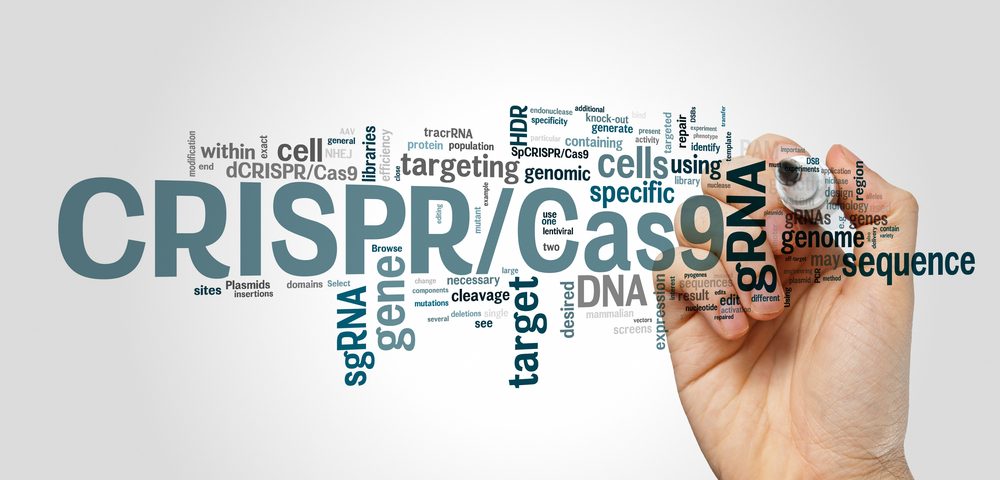
2016
- An In Depth Look at the Father of Systems Biology. Mary Chitty, Library Director & Taxonomist, Cambridge Healthtech Institute. Bio-IT World. (28 Nov 2016).
- New Bioinformatic Analysis Reveals Role of Proteins in Diabetic Kidney Disease, Yadira Galindo, UCSD Health Newsroom, (15 November 2016).
- A Disease of the Genome, Liz Harley, Frontline Genomics Magaine, Issue 10, 17-20, (Oct 2016) [PDF]
- Researchers ID Cancer Gene-Drug Combinations Ripe for Precision Medicine, Heather Buschman, UCSD Health Newsroom, (21 July 2016).
- Big Data’s Big Implications for Cancer Treatments, Patricia Fitzpatrick Dimond, GEN Genetic Engineering & Biotechnology News, 9 May (2016).
- San Diego biotech raises $46 million, Bradley J. Fikes, UT San Diego, 5 May (2016)
- Biomarker Tracks Accelerated HIV-Associated Aging, National Institute of Mental Health (NIH), 21 April (2016). and AIDS.Gov, 27 Apr (2016).
- People Who Are HIV-Positive May Be Aging Faster Than Their Peers, Michaeleen Doucleff, NPR Health, 26 April (2016).
- HIV Infection Prematurely Ages People by an Average of Five Years, Science Daily, 21 April (2016).
- Meet The Author: Andrew Gross, Molecular Cell, Vol 62, 21 April (2016).
- NextGen Stars Program, AACR American Assoc For Cancer Research, April (2016). Dr. John Paul Shen presents at the AACR Major Symposium “Modeling the Interface between Cancer Genomics and Drugs”.
- UCSF Establishes Quantitative Biosciences Institute: New Research Unit will Identify Opportunities for Disease Treatments Using Computation, Mathematics and Statistics. Jennifer O’Brien, UCSF News Center (16 March 2016)
- New Research Unit will Identify Opportunities for Disease Treatments Using Computation, Mathematics and Statistics, Jennifer O’Brien, UCSF News Center, 16 March (2016).
- Using Big Data to Chart Cancer’s Hidden Genetic Weaknesses. Nicholas Weiler, UCSF News Center (24 Feb 2016).
- Just The FAQs: Connecting Genotype to Phenotype with “Ontotype”, UC San Diego Health Sciences, 24 Feb (2016).
- Comparative Genomics: One for all, Duncan T Odom, ELife, 11 Feb (2016).
- All’s Well That Scales Well, H Craig Mak, Cell Systems Editorial, Vol 2, Issue 2, p 59. 24 Feb (2016).
- GenomeSpace “Recipes” Help Biologists Interpret Genomic Data, Heather Buschman, UCSD Health Newsroom, 20 Jan (2016).
2015
- Three UC San Diego Professors Named AAAS Fellows, Mario Aguilera, UCSD News Center, 24 Nov (2015), and at AAAS.Org, 16 Nov (2015)
- New Biomarkers Might Help Personalize Metastatic Colorectal Cancer Treatment, UCSD Health Newsroom, 17 June (2015) and in ScienceDaily, 17 June (2015)
- UC San Diego, UC San Francisco Launch New Cancer Cell Mapping Initiative, UCSD News Center, 29 January (2015) and in GenomeWeb, 29 January (2015)
2014
- Don’t judge every tumor by its tissue, scientists say, Julia Rosen, Los Angeles Times, 7 Aug (2014)
2013
- How cells remodel after UV radiation. Medical Xpress, 19 December (2013) and in Medical News Today, 29 December (2013), ScienceDaily, 19 December (2013), Nanowerk, 20 December (2013), Innovations Report, 20 December (2013), and HealthCanal, 19 December (2013)
- Making connections: using networks to stratify human tumors, Benjamin J. Raphael, Nature Methods 10(11):1077-1078 (2013)
- “Wildly Heterogeneous Genes”. Scott LaFee, UC San Diego Health Newsroom (16 Sept 2013). Reprinted in Innovations Report (16 Sept 2013) and Science Daily (15 Sept 2013).
- Studying Tumor Mutations via a Network Approach, GEN Genetic Engineering & Biotechnology News, 16 September (2013) and in News Medical, 16 September (2013)
- Gene networks predict cancer prognosis, Bradley J. Fikes, UT San Diego, 15 September (2013)
- Unraveling cancer through network models, Sarah Webb, PhD, BioTechniques, 09 September (2013) [PDF]
- Searching for Meaningful Markers of Aging, David Stipp, New York Times, 22 July (2013)
- UCSD Study Clarifies Epigenetic Behavior, Bradley J. Fikes, UT San Diego, 04 January (2013)
- Automating the construction of gene ontologies. Kara Dolinski and David Botstein, Nature Biotechnology News and Views, (09 Jan 2013)
- In Epigenomics, Location is Everything. Scott Lafee, UC San Diego Health Newsroom, (29 Oct 2010).
2012
- Network-Extracted Ontologies Organize Knowledge from Genomic Data, BiotechDaily, 24 December (2012)
- Toward a New Model of the Cell. Scott LaFee, UC San Diego Health (17 Dec 2012).
- Biomarking time: methylome modifications offer new measure of our ”biological” age news, Scott LaFee, UC San Diego Health, (21 November 2012).
- My data are your data, Vivien Marx, Nature Biotechnology, 30, 509–511, 07 June (2012)
- Proteomics: The interaction map. Monya Baker, Nature 484, 271–275 (12 April 2012) doi:10.1038/484271a Published online (11 April 2012).
2011
- La Jolla Research and Innovation Summit Connects Business and Academia, Tiffany Fox, April 25 (2011)
- Digging Deeper, Seeing Farther: Supercomputers Alter Science, John Markoff, The New York Times, April 26 (2011)
- Study shows how stress causes extensive genetic rewriting, Kristen Bole, PHYSORG.com, (12 Jan 2011) andUCSF News Center (12 Jan 2011).
- Rewiring makes the difference. Andrea Califano, Molecular Systems Biology 7(463); doi:10.1038/msb.2010.117, (18 January 2011).
2010
- UC San Diego Receives $6.5M to Decipher Protein Interactions, Steve Sinovic, San Diego Business Journal, December 13 (2010)
- Scientists Map Genetic Network’s Response to DNA-Damaging Agents, Steve Sinovic, San Diego Business Journal, December 3 (2010)
- Scientists Map Changes in Genetic Networks Caused By DNA Damage, Scott LaFee, UC San Diego Health (02 Dec 2010).
- UCSD Gets $6.5M NIH Grant to Fund New Network Biology Center, GenomeWeb Daily News, November 2 (2010)
- Stanford, UCSD Biologists Take Plunge Into Arpanet-Style Project with Sage Bionetworks, Luke Timmerman, Xconomy — Seattle, October 6 (2010)
- UCSD awarded $15.4 million for systems biology research, La Jolla Light, October (2010)
- New Center Looks at How Human Systems Function or Fail. Scott Lafee, UC San Diego Health Newsroom, (29 Oct 2010).
- Researchers Map Thousands of MAPK Protein Interactions. Debra Kain, UC San Diego Health (20 Sept 2010).
- Neither models nor miracles: a look at synthetic biology, Robert Fortner, Ars Technica, August 24 (2010)
- Life Science Technologies: Protein-Protein Interaction Technologies Toward a Human Interactome, Jeffrey M. Perkel, Science, July 23 (2010)
- Researchers Create Atlas of Transcription Factor Combinations. Debra Kain, UC San Diego Health (05 March 2010).
2009
- Search for pathway-level biomarkers, Amy Swinderman, Drug Discovery News, August (2009)[Print version]
- More harm than good?, Justine Davies, The Guardian, June 23 (2009)
- Amid Efforts to Give Foods More Antioxidant Punch, Mysteries Remain, Jennifer LaRue Huget, The Washington Post, June 2 (2009)
- Oxidative stress may extend lifespan, The Times of India, May 29 (2009)
- How Oxidative Stress May Help Prolong Life. Scott LaFee, UC San Diego Health. (28 May 2009)
2008
- UCSD’s Ideker Seeks Contributors for ‘Clearinghouse’ of Network Models, Vivien Marx, October 17 (2008)
- Primetime for Protein Arrays, Jeanene Swanson, Genome Technology, July/August (2008)
2007
- Networking, protein style, Nicola McCarthy, Nature Reviews: Cancer, December (2007)
- Using Molecular Pathways to Assess Cancer Patients, Katherine Bourzac, Technology Review, October 17 (2007)
- What Can Systems Biology Do for You? Four computational modeling strategies and the data that build them, Jeffrey M. Perkel, The Scientist, March (2007)
- Friendster for Proteins, Robert Langreth and Matthew Herper, Forbes, March 12 (2007)
2006
- Scientist to Watch. Trey Ideker: Navigating Deep Waters, Ishani Ganguli, The Scientist, Oct (2006)
- Making Inroads on Malaria: MS and Other Analytical Methods Aid the Detection and Understanding of the Persistent Parasite Plasmodium. Tom Hayden, Analytical Chemistry, August 1 (2006)
- How Cells Thwart Cancer: A systems biology map of cells’ responses to DNA damage could provide valuable clues to discovering new cancer drugs. Katherine Bourzac, Technology Review, May 25 (2006)
- Cell, Heal Thyself: New systems biology model reveals how cells repair DNA damage, Jacobs School of Engineering, May 18 (2006)
- By creating maps of the body’s complex molecular interactions, Trey Ideker is providing new ways to find drug, Jon Cohen, Technology Review, Mar 20 (2006)
- 10 Emerging Technologies Report: Comparative Interactomics, Technology Review, Feb 21 (2006)
2005
- Two UCSD Bioengineering Professors Recognized as Pioneers in Emerging Field of Comparative Interactomics, Jacobs School of Engineering, Nov 2 (2005)
- Malaria Parasites ‘Wiring’ May be Key, The San Diego Union Tribune, Nov 3 (2005)
- Researchers Develop New Method To Find Deadly Malaria Parasite’s Achilles Heel, ScienceDaily, Nov 2 (2005)
- TR35: Technology Review’s top 35 innovators under the age of 35, Technology Review, Oct (2005)
- UCSD Bioengineering Professor Trey Ideker Named Top 35 Young Scientist By MIT’S Technology Review Magazine, UCSD News, Sept 6 (2005)
- Mapping ‘circuitry’ of yeast genes using technique that could be applied to humans, Medical News Today, May 7(2005)
- Researchers Map ‘Circuitry’ of Yeast Genes Using Technique That Could be Applied to Humans, Science Daily, May 6 (2005)
- Examination of Internal ‘Wiring’ of Yeast, Worm, and Fly Reveals Conserved Circuits, Science Daily, Feb 8 (2005)
2004 and prior
- UCSD Bioengineering Professor Wins 2004 Packard Foundation Fellowship, Jacobs School of Engineering, Oct 15 (2004)
- Thinking, Tinkering, Tooling in Systems Biology, Genomics and Proteomics (2004)
- UCSD and SDSC to Host RECOMB Computational Molecular Biology Meetings, Jacobs School of Engineering, Mar 23 (2004)
- PATHBLAST: Software Tackles Protein Pathways, Whitehead Institute for Biomedical Research, Sept 25 (2003)
- Hot Papers: Yeast Pushes the Proteomic Envelope, Mignon Fogarty, The Scientist, July 28 (2003)
- Data Explosion: Bringing Chaos to Order with Bioinformatics, Charles W. Schmidt, Environmental Health Perspectives, May (2003)
- Integrating the Pieces of Systems Biology, Beth Schachter, Genomics and Proteomics, June (2003)
- “The Path Not Taken”, Edward M. Marcotte, Nature Biotech, July (2001), pp.626-627
- ISB Scientists Have Their Work Cut Out, John S. MacNeil, Genome Web, May (2001)
